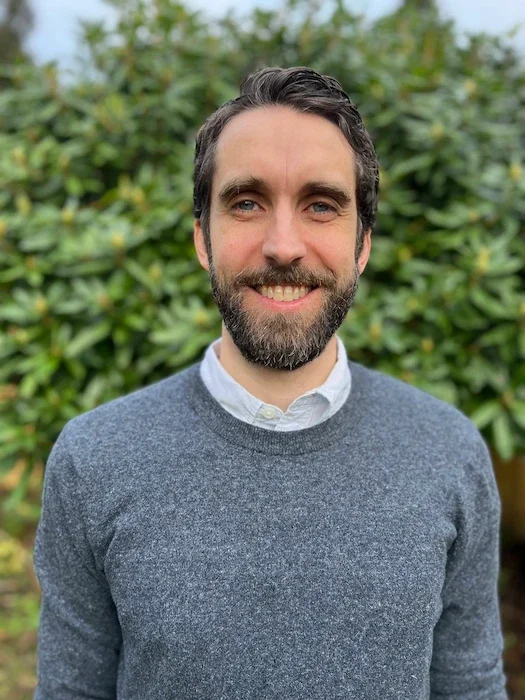Matthew Enkema, PhD
I specialize in the treatment of anxiety disorders, obsessive-compulsive disorders, and substance use problems or addiction.
Training and Experience
I’m a licensed clinical psychologist, and for more than a decade I’ve dedicated my work to helping people find relief from anxiety, compulsive behaviors, and the stress that keeps them from living the lives they want. My training has taken me through some of the most respected programs in the country, but what matters most is how that training helps me sit with you—understanding your struggles and guiding you toward lasting change.
I earned my Ph.D. in Clinical Psychology at the University of Washington, where I trained in evidence-based approaches that are proven to work. My clinical internship at the Seattle Veterans Affairs hospital deepened my experience in treating a wide range of concerns, and my advanced postdoctoral work focused specifically on anxiety disorders, OCD, addictions, and mindfulness-based care. I also served as a staff psychologist in the Anxiety Center at the Evidence Based Treatment Centers of Seattle for two years before opening my private practice.
Over the years, I’ve become skilled in therapies that research has shown to be effective. The primary modality that I practice is Cognitive-Behavioral Therapy (CBT), which often incorporates elements of Exposure and Response Prevention (ERP), Behavioral Activation (BA), and Cognitive Restructuring. I also integrate elements of Acceptance and Commitment Therapy (ACT), Dialectical Behavior Therapy (DBT), Motivational Interviewing (MI), and mindfulness-based approaches. These aren’t just techniques on paper. I tailor my approach to each person I work with, helping them reduce symptoms and build a life that feels more balanced, meaningful, and free.
In addition to clinical work, I’ve published research, trained other professionals, and stayed closely involved in the scientific community. That background keeps me connected to the newest developments in treatment, and I bring that knowledge directly into my sessions.
At the heart of my practice is a deep respect for the uniqueness of each person I meet. I’m committed to honoring cultural differences and creating a safe, affirming space for people from all backgrounds.
Personal Life
I have been fortunate to live my entire life in the Pacific Northwest. I grew up in Bellevue, and have lived in Seattle for the past 20 years.
I am devoted to my profession and I aim to balance this with my life outside of my career. Outside of work, my life is full of the joys and challenges of having a family. My wife and I are raising two active and adventurous young children. We explore the beautiful natural world together on weekends and holidays.
I enjoy exercise and sports, especially tennis, which I have competed in throughout my life. I also spend time with old and new friends as often as I can, sharing evening meals and adventures in the outdoors.
My Approach to Treatment
I am deeply committed to using evidence-based treatments to help you find balance and freedom from what has been troubling you. I focus on assisting my clients as they build skills in four core domains:
Awareness
Awareness has to do with getting out of auto-pilot. Mental health problems have triggers, or experiences that trigger problematic patterns of thinking and action. Often the problematic patterns seem as though they happen automatically and there is nothing one can do about them. Increasing awareness empowers you to turn off the auto-pilot and choose how you respond to triggers.
Change
Change is often one of the primary goals of treatment for my clients. I have many tools for you to use and skills for you to practice as you learn how to change your thinking, actions, physiology, and emotions. You will practice these skills with me during our meetings and on your own between sessions.
Willingness
Willingness is a way of relating to experience with curiosity and kindness, without engaging in excessive and ineffective efforts to control. I will introduce you to exercises and techniques for you to use as you practice discerning between what can and cannot be changed.
Motivation
Motivation is at the core of effective treatment, and is thus central to our work together. As treatment progresses you will experience more time, energy, and attention to devote to your highest priorities. I will assist you as you clarify what fills your heart and makes you feel most alive. We will use this knowledge to guide us through our work together.
Licensure
Psychologist, PY PY61110536 (WA state)
PSYPACT APIT Number: 18938
Education
Doctor of Philosophy (PhD), Clinical Psychology, University of Washington
Masters of Science (MS), Clinical Psychology, University of Washington
Bachelor of Arts (BA), Psychology, Seattle University
Advanced Training
Postdoctoral Fellowship, University of Washington Department of Psychiatry and Behavioral Sciences
Postdoctoral Fellowship, Center of Excellence in Substance Addiction Treatment and Education (CESATE), Seattle VA Hospital
Clinical Internship, Seattle VA Hospital
Specific Therapies Offered
Exposure and Response Prevention (ERP) for Anxiety Disorders and OCD
Cognitive Processing Therapy (CPT) for PTSD
Prolonged Exposure (PE) for PTSD
Behavioral Activation (BA) for Depression
Acceptance and Commitment Therapy (ACT)
Motivational Interviewing (MI) for Substance use problems
Mindfulness-Based Relapse Prevention (MBRP) for Substance use problems
Primary areas of focus
Anxiety disorders
Obsessive-compulsive disorder (OCD)
Additional Areas of focus
Post-traumatic stress disorder (PTSD)
Depression
Sleep difficulties
Substance use concerns
Stress
Burnout
Chronic pain

